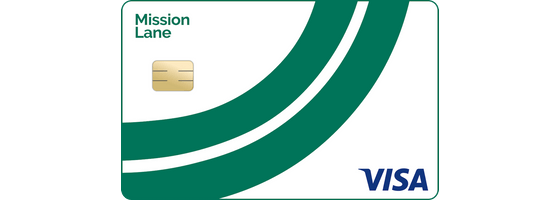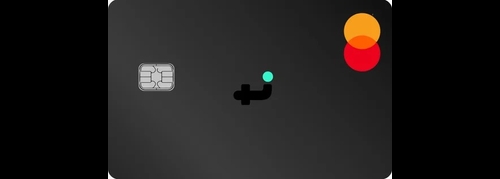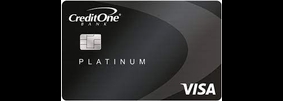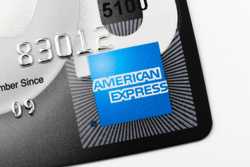- No security deposit required.
- $0 annual fee if you qualify based on your credit.
- Reports to all three credit bureaus.
Personal Finance
Our evaluations and opinions are not influenced by our advertising relationships, but we may earn a commission from our partners’ links. This content is created by TIME Stamped, under TIME’s direction and produced in accordance with TIME’s editorial guidelines and overseen by TIME’s editorial staff. Learn more about it.
Unsecured credit cards don’t require the payment of a security deposit, but they do have other costs. Because of the higher risk associated with borrowers who have bad credit, most of these cards will have a higher interest rate and higher annual fees compared to cards marketed towards those with higher credit scores. However, if you have a fair credit score (typically ranging from 580 to 669) or no credit history at all, you may have a wider range of credit cards available to you, with more favorable terms, such as lower interest rates and lower fees.
Our recommendations

Mission Lane Visa® Credit Card
Mission Lane Visa® Credit Card
Why we like it:
The Mission Lane Visa® Credit Card is available to people with bad credit without having to provide a security deposit. Plus, Mission Lane has a pre-application process which can give you a good idea as to whether you will be approved without having a hard inquiry on your credit report if you end up not applying. Mission Lane reports to all three credit bureaus, which can help rebuild your credit.
If you have bad credit and you’re looking for a credit card that doesn’t require a security deposit, then the Mission Lane Visa® Credit Card could be for you. It offers lines of credit starting at $300, with annual fees ranging of $0. So if your credit isn’t as bad as you might have thought, you could potentially avoid having to pay an annual fee.
But, as an unsecured card, you’ll never be asked to pay a security deposit. Otherwise, this is a pretty basic card that offers no rewards and has a 3% foreign transaction fee.
Product details:
- $0 Annual Fee. Clear terms and transparent pricing.
- See if you qualify instantly without harming your credit score.
- Be automatically considered for a higher credit line in as few as 7 months.
- Free, online credit score access for cardholders.
- No interest on purchases when you pay in full and on time each month.
- No security deposit required – get started today!
- Enjoy coverage from Visa®.
- Access your account anytime, anywhere with our mobile app.
- If you are charged interest, the charge will be no less than $0.50.
Pros & cons:
Pros:
Cons:
- No rewards.
- 3% foreign transaction fee.
- 29.99-33.99% Variable
Avant Credit Card
Avant Credit Card
Why we like it:
If you have fair or bad credit, you may be worried about wasting a hard inquiry on your credit report to only get denied for the card. Thankfully, the card_name lets you see if you pre-qualify without affecting your credit. Plus, the card comes with a minimum credit limit of $300 and up to $3,000, without a security deposit.
The card_name is designed for those with bad or fair credit, and you can see if you pre-qualify without it affecting your credit. Being prequalified doesn’t guarantee that you’ll be accepted, but it gives you a good idea if it’s likely. This card has a annual_fees annual fee, and it doesn’t offer any rewards or balance transfers.
Product details:
- No deposit required.
- No penalty APR.
- Fast and easy application process.
- Zero fraud liability for unauthorized charges.
- We may periodically review your account for credit line increases.
- Disclosure: If you are charged interest, the charge will be no less than $1.00. Cash Advance Fee 3%, Min: $10
- Annual Fee: $59 and Regular Purchase APR: 35.99% (variable)
- Avant branded credit products are issued by WebBank, member FDIC.
- Late Fee up to $39
- Checking your eligibility does not affect your credit score.
- Balance transfer fee:
- Cash advance fee:
- Foreign transaction fee:
Pros & cons:
Pros:
- Reports to all three credit bureaus.
- Proactive credit line increases.
- $300 - $3,000 credit limit.
Cons:
- No rewards.
- No balance transfers.
- Annual fee.
Capital One QuicksilverOne Cash Rewards Credit Card
Capital One QuicksilverOne Cash Rewards Credit Card
Why we like it:
The Capital One Quicksilver One Credit Card is one of the few cards that offers competitive cash back, but doesn’t require good or excellent credit. And Capital One doesn’t charge foreign transaction fees. Which is great for those who travel internationally or make purchases from foreign companies.
The card_name is a great card for those who have already made some progress rebuilding their credit. This card offers you unlimited 1.5% cash back on all purchases, as well as valuable benefits. For example, you receive six months of complimentary Uber One membership, which includes no-fee delivery on eligible food and groceries, and up to 10% off eligible orders with Uber Eats. There’s a annual_fees annual fee for this card, and no foreign transaction fees.
Product details:
Card Rewards:
- Earn unlimited 1.5% cash back on every purchase, every day
- No rotating categories or limits to how much you can earn, and cash back doesn’t expire for the life of the account. It’s that simple
- Be automatically considered for a higher credit line in as little as 6 months
- Earn unlimited 5% cash back on hotels and rental cars booked through Capital One Travel, where you’ll get Capital One’s best prices on thousands of trip options (terms apply)
Additional Benefits:
- Enjoy peace of mind with $0 Fraud Liability so that you won’t be responsible for unauthorized charges
- Help strengthen your credit for the future with responsible card use
- Monitor your credit score with CreditWise from Capital One. It’s free for everyone
- Check out quickly and securely with a contactless card, without touching a terminal or handing your card to a cashier. Just hover your card over a contactless reader, wait for the confirmation, and you’re all set
Member FDIC
Pros & cons:
Pros:
- foreign_transaction_fee foreign transaction fees.
- Reasonable annual fee.
- Automatic credit line reviews.
Cons:
- Requires credit_score_needed credit
- reg_apr,reg_apr_type APR.
- No bonus cash back categories.
Prosper® Card
Prosper® Card
Why we like it:
The card_name is a credit card for bad credit that doesn’t require a minimum deposit and also doesn’t charge an annual fee for the first year. Your first year’s annual fee wil be waived as long as you sign up for AutoPay, which is helpful for paying your credit card bill on time anyway. The card also comes with an initial credit limit of between $500 and $3,000, which is on the high side for a card for bad credit.
Prosper offers the card_name for those with bad credit that doesn’t require a security deposit. It has a low, annual_fees annual fee. Other benefits include instant access to 50% of your available credit while waiting for your card to ship to you. Prosper also regularly reviews your credit for potential credit line increases.
Product details:
- No annual fee for the first year with AutoPay.
- No security deposit required.
- We don't charge fees for ATM cash withdrawals.
- Credit limit of $3,000+: Initial line of $500-$3,000 with automatic reviews for increases.
- Instant access to credit: 50% of your credit line on approval and the rest when your card arrives.
- Fraud protection: Technology built to protect you from unauthorized charges.
- Financial resources: Free, exclusive access to courses and content.
- Balance transfer fee: balance_transfer_fees
- Cash advance fee: cash_advance_fee
- Foreign transaction fee: foreign_transaction_fee
Pros & cons:
Pros:
- No annual fee for the first year with AutoPay.
- Initial credit limit of $500 to $3,000.
- No fees for ATM cash withdrawals.
Cons:
- No rewards.
- Foreign transaction fee.
- No balance transfers.
Destiny Unsecured Mastercard®
Destiny Unsecured Mastercard®
Why we like it:
The card_name is available to applicants with bad credit, even those who have had a prior bankruptcy. Plus, it reports to all three credit bureaus, which can help improve your credit score with responsible use.
The Destiny Mastercard® is available to applicants with bad credit, even those who have had a prior bankruptcy. However, the Destiny Mastercard® comes with a high annual fee and other fees. It charges an annual fee of annual_fees, making the total for the second year $199.
Product details:
- All the benefits of a Mastercard, without a security deposit
- 24/7 access to your account, even on mobile!
- Reports to all three major credit bureaus
- Less than perfect credit is okay, even with a prior bankruptcy!
- $0 Fraud Liability* for unauthorized use offers you peace of mind
- Nationwide acceptance – use anywhere Mastercard is accepted in app, in store, and online
- Quick and easy application process with a typical response in 60 seconds or less
- Balance transfer fee: balance_transfer_fees
- Cash advance fee: cash_advance_fee
- Foreign transaction fee: foreign_transaction_fee
Pros & cons:
Pros:
- Reports to all three credit bureaus.
- Accepts applicants with a prior bankruptcy.
- Available to applicants with bad credit.
Cons:
- High APY.
- High annual fee.
- Monthly fees.

Tomo Credit Card
Tomo Credit Card
Why we like it:
The Tomo Credit Card is unique but offers a lot of positive features for those who have bad credit or no credit. Since Tomo links to your bank account for autopay and you don’t carry a balance on the card, it is impossible to get into debt trouble. This means that holding this card will have a much higher likelihood of increasing your credit score. Even though Tomo doesn’t perform credit checks, it does report to the three credit bureaus, which will help your credit score. Plus, it is one of the few credit cards on this list that provides additional benefits and credits like $5 off DoorDash each month, free ShopRunner membership and cell phone protection for stolen or damaged phones.
Tomo Credit is another card issuer that approves applicants based on information other than a traditional credit score. That’s one of the reasons it's able to offer a credit card with no annual fee for applicants with bad credit. However, Tomo requires you to link your bank account and set up autopay, and it doesn’t charge interest rates. So it’s not a card for those who need to borrow money. There’s no annual fee for this card.
The Tomo Credit Card can offer limits of up to $10,000 because it approves applicants based on information other than a traditional credit score. Just keep in mind that Tomo requires you to link your bank account and set up autopay and doesn’t charge interest rates. But if you have a high balance in your bank account, then you might receive a high credit limit from this card. There’s no annual fee for this card.
Product details:
- No credit check required
- No security deposit
- No APR charges
- Reports to all 3 major credit bureaus
- Annual fee: $2.99 per month ($35.88 annually)
- Up to $10,000 credit limit
Pros & cons:
Pros:
- Available to those with no credit and no Social Security number.
- Access to benefits and credits.
- Cell phone protection.
Cons:
- You have to pay an annual “participation fee.”
- You have to link your bank account.
- No ability to carry a balance.

Credit One Bank® Platinum Visa®
Credit One Bank® Platinum Visa®
Why we like it:
It is difficult to find an unsecured credit card that offers cash back rewards for those who have bad credit, but the Credit One Platinum Visa does. The card earns 1% cash back on qualifying purchases like gas, groceries and phone, internet and cable services.
CreditOne Bank specializes in offering unsecured credit cards to applicants with bad credit, and its Platinum Visa For Rebuilding Credit offers 1% cash back rewards on eligible purchases. Qualifying purchases can include gas, groceries, mobile phone and internet service, as well as cable and satellite TV services. However this card does have a $75 annual fee the first year, which becomes $99 the after that, billed at $8.25 a month. But with on-time payments and little debt, you may qualify for a card for those with fair credit within a year.
Product details:
- 1 percent cash back on gas, groceries, and utility bills
- $39 annual fee
- Earn up to 10% back at some retailers with the Cash Back Rewards Program
- Cash advance fee:
- Foreign transaction fee:
Pros & cons:
Pros:
- Cash back rewards.
- Automatic credit line increase reviews.
- No security deposit required.
Cons:
- Higher annual fee.
- 29.24% variable APR.
- Small credit limit.
Best unsecured credit cards compared
| Card name | Annual fees | Credit score needed | Bonus rewards |
|---|---|---|---|
$0 | Fair, Poor, Bad | bonus_miles | |
annual_fees | credit_score_needed | bonus_miles | |
annual_fees | credit_score_needed | bonus_miles | |
annual_fees | credit_score_needed | bonus_miles | |
annual_fees | credit_score_needed | bonus_miles | |
$2.99 per month | No credit, Poor | N/A | |
$75 for the first year. After that, $99 annually (billed as $8.25 monthly) | Bad Credit | N/A |
Methodology
To find the best unsecured credit cards for people with bad credit, we looked through all of the credit cards of this type on the market. A review of the top cards was then conducted by one of the nation’s leading credit card experts with more than 15 years of experience. After review, the top cards for each category were selected.
How to select the best unsecured credit card for bad credit
When selecting the best unsecured credit card for bad credit, it's important to consider a few key factors.
Is this card for people with bad credit?
Make sure the card is specifically designed for individuals whose credit matches yours. If your credit is considered bad, a card for people with fair or no credit may not work for you.
What is the card’s standard interest rate?
Pay attention to the card's standard interest rate. This can significantly impact your finances if you need to carry a balance. Look for a card with a reasonable interest rate, keeping in mind that qualifying for a low interest rate may be a challenge if your credit score is low.
What are the fees associated with the card?
Likewise, carefully examine the card's fees, including annual, application, foreign transaction, additional cardholder, and balance transfer fees. You may be unable to avoid all these fees, but the fewer fees there are, the better.
What are my priorities?
Consider your priorities and preferences. Whether you're seeking a card for travel, cash-back rewards, or simply aiming for the lowest possible annual fee, aligning the card's features with your financial needs and goals is essential.
How to apply for an unsecured credit card
To apply for an unsecured credit card for bad credit, follow these steps:
Check your credit score
Check your credit score to determine whether you meet the minimum eligibility criteria for an unsecured credit card designed for those with bad credit.
Research suitable cards
Look for unsecured credit cards specifically tailored for individuals with bad credit. Compare credit score requirements, features, and fees to find a card that best fits your financial situation.
Gather necessary documents
Collect the necessary documents—including ID, proof of income, and alternative data, if permitted—based on the credit card issuer's requirements.
Complete the application
Visit the website of the chosen credit card issuer or apply through other designated channels. Complete the application form with accurate personal and financial information.
Wait for approval
After submitting your application, wait for the credit card issuer to review your application. Approval timelines vary, but some issuers provide instant approval decisions.
Understand the terms
If approved, carefully review the terms and conditions of the credit card, including the interest rate, fees, and credit limit. Make sure they match the terms you originally expected.
Activate and use the card responsibly
Once you receive the card, activate it as per the issuer's instructions and use it responsibly to improve your credit score over time.
More about unsecured credit cards
It’s important to understand what an unsecured credit card is and what it isn’t, as well as what it takes to qualify before you make the effort to secure one.
What is an unsecured credit card?
An unsecured credit card is a type of credit card that does not require you to provide a security deposit to open or maintain the account. Unsecured credit cards are issued based on your creditworthiness and financial history. They typically have higher interest rates and fees for individuals with bad credit, but they offer the convenience of not having to tie up funds in a security deposit and can help you build or rebuild your credit when used responsibly.
Types of unsecured credit cards
Unsecured credit cards can come in various types to cater to different financial needs and credit profiles. Some common types of unsecured credit cards include:
Standard unsecured credit card
These traditional credit cards do not require a security deposit and are issued based on your creditworthiness. The higher your credit rating, the lower the interest rate, and vice versa.
Unsecured credit card for bad xredit
Unsecured credit cards designed for those with bad credit include traditional credit cards with higher interest rates, annual fees, and penalties, as well as cards that utilize alternative credit data such as rent payments, spending patterns—even social network data—to determine creditworthiness.
Student credit cards
Designed for college students or individuals with limited credit history, student credit cards are unsecured cards that often come with lower credit limits and may offer incentives tailored to student needs, such as rewards for good grades or credit education resources.
Retail store credit cards
These unsecured credit cards are issued by specific retail stores and can only be used for purchases at the issuing retailer. They often come with special discounts, rewards, or financing options for store purchases.
Low-Interest or 0% Intro APR credit cards
Some unsecured credit cards offer low ongoing interest rates or introductory 0% APR periods on purchases or balance transfers, making them suitable for individuals looking to save on interest costs.
Rewards credit cards
These unsecured cards offer rewards programs, such as cash back, travel rewards, or points for purchases, providing cardholders with benefits for using the card for everyday spending.
Pros & cons of unsecured credit cards for bad credit
When considering credit cards for people with bad credit, there are several pros and cons to remember.
Pros:
- Opportunity to rebuild your credit over time by responsibly using a credit card for bad credit.
- Access to financial resources provided by an unsecured card can provide you with a safety net in case of emergencies or unexpected expenses.
- Potential for credit limit increases based on your responsible use of the card and positive marks on your credit report.
Cons:
- Higher interest rates are a fact of life with credit cards for bad credit, leading to increased costs if the card balance is not paid in full each month.
- Fees, including annual fees, monthly maintenance fees, or other charges, can add to the card's overall cost.
- Limited rewards and benefits, compared to cards designed for individuals with better credit, can make credit cards for bad credit less beneficial to your bottom line.
Unsecured vs secured credit card
Secured and unsecured credit cards differ in how they are backed and who can qualify for them.
Secured credit cards require a security deposit, which serves as collateral and determines the credit limit. These cards are usually available to individuals with poor or no credit history. On the other hand, unsecured credit cards do not require a security deposit but are typically designed for individuals with fair to excellent credit scores.
Unsecured cards rely solely on the borrower's promise to pay, and the credit limit is based on the cardholder's creditworthiness. Secured credit cards often have lower fees and interest rates than unsecured cards, as they pose less risk to the issuer.
An unsecured credit card might make more sense than a secured credit card when you have bad credit but want to build or rebuild your credit history without tying up a significant amount of funds in a security deposit. Additionally, if you are looking for a credit card with rewards, perks, and lower annual fees, an unsecured credit card might be a more attractive option than a secured card.
TIME Stamp: Apply for an unsecured credit card to build or rebuild your credit score
If your credit score is bad, your primary goal should be to improve it. The best way to raise your credit score is by responsible use of an unsecured credit card. If you can qualify for an unsecured card, you will likely face higher interest rates, fees, and potential penalties than someone with a higher score. Provided you use the card responsibly, these “costs of bad credit” will do little harm and will eventually help qualify you for lower rates and fees, and better rewards because the issuer will want to keep you as a customer.
Frequently asked questions (FAQs)
Can I get an unsecured credit card with a 500 credit score?
Yes, there are several unsecured credit cards that are offered to those with credit scores of 500 or less.
What is an unsecured credit card for bad credit?
These are cards thatare designed for people with bad credit. While many credit cards for those with bad credit, most require the payment of a refundable security deposit. Unsecured cards for people with bad credit may not charge a refundable security deposit, however many have significant annual fees.
Are secured or unsecured credit cards best for rebuilding credit?
Both types of credit cards can help you to rebuild your credit, so long as you use them responsibly. This means paying your bills on-time and carrying very little, if any debt. The difference is that secured credit cards require the payment of a refundable security deposit before your account can be opened, and are less likely to charge an annual fee.
Can a secured credit card become unsecured?
Yes. Some secured credit cards will offer cardholders a refund of their deposit after consistently making their payments on-time, and avoiding debt.
Can you get a credit card after bankruptcy?
Yes. You will have to qualify for a credit card designed for people with bad credit, like the ones mentioned in this article.
How can I get approved for a credit card with bad credit?
It’s important to only apply for credit cards that are designed for applicants with bad credit. While these cards may require a security deposit, or charge a significant annual fee, you can still be approved.
Can I prequalify for credit cards with bad credit?
Some credit cards for people with bad credit offer a prequalification process, which is sometimes called pre-approval. You can typically prequalify for a credit card without it having any effect on your credit.
The information presented here is created by TIME Stamped and overseen by TIME editorial staff. To learn more, see our About Us page.
Featured Articles

Business Platinum Card from American Express Review 2025
Learn more about the American Express Business Platinum Card, its many benefits, and who it’s right for.

Chase Freedom Unlimited vs. Citi Double Cash Card: Why You'll Earn More with Freedom
Both cards are without an annual fee and feature generous rewards programs. But Freedom Unlimited provides a competitive edge with its cash back welcome bonus.

British Airways Visa Signature® Card Review 2024
The British Airways Visa Signature® card features a lucrative bonus and valuable benefits, but it’s not perfect for everyone. Learn more.

